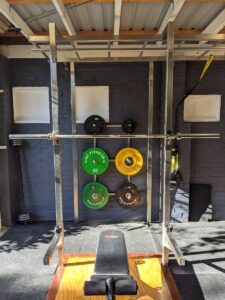Galaxy Insulation & Dry Lining is Providing Various Insulation Products

Written by Cinthia Rosa
Uninsulated commercial buildings have significant heat loss as heat moves from warmer to cooler locations. This stresses your heating, ventilation, and air conditioning (HVAC) system, increasing energy costs over time. With proper insulation, you can bring down how much energy your HVAC system uses and reduce energy costs, making it a great investment.
As one of the leading insulation providers in the UK, we’ll help you choose the right insulation for your commercial building. Moreover, we deal in top-quality products like rockwool Pipe Insulation from renowned manufacturers. In this blog, we’ll cover the types of insulations, the factors we consider when recommending thermal and acoustic insulation products, along with other benefits of insulation.
What Types of Insulation are Available in the UK?
Learning more about insulation will help you understand what you can expect from various products. Primarily, we offer insulation for the following parts of the building – wall, floor, and roof.
Depending on your requirements, we suggest the following types of insulation.
1. Concrete Block Insulation
As the UK receives plenty of rainfall and has a humid climate, keeping moisture away from the building is crucial. Concrete block insulation works well for this purpose and has a longer lifespan. The fact that it is economical makes it a well-rounded solution.
2. Batt or Blanked Insulation
Another type of insulation you’ll find in buildings is batt insulation. Generally, they use materials like fibreglass, natural or plastic fibres, or mineral rock and slag wool, making it an inexpensive option.
3. Structural Insulated Panels
A modern insulation solution, structural insulated panels offer excellent insulation performance. Due to their design, it is easy to install, reducing the installation time. Their long lifespan makes them a great option if you’re looking for a cost-effective solution.
4. Reflective Insulation
Hot summers can make working conditions uncomfortable without proper insulation. As the name suggests, they reflect the heat, reducing the load on your air-conditioning system. They are useful in preventing heat from going downwards.
5. Spray Insulation
Spray insulation works best when there’s already insulation in your building with other materials. They fill gaps and cavities, improving the seal. Spray is a handy solution if irregular shapes or barriers prevent the use of other types of insulation.
What are the Other Benefits of Insulation?
As highlighted earlier, insulation offers a financial incentive by reducing your building’s energy costs over time. It also has other benefits that make it a great choice for all types of structures. Here are three upsides insulated buildings have to offer:
1. Create a Comfortable and Safe Workspace
Ensuring the workspace is at a comfortable temperature goes a long way in improving employee productivity. As the UK’s weather changes quickly, it affects outdoor humidity. If you’re building has low humidity, the water vapour will try to come inside.
High humidity creates uncomfortable working conditions and affects productivity making employees feel lethargic. Also, it increases the risk of overheating as the body can’t remove heat effectively.
Insulation prevents humidity from rising inside the building by acting as a barrier. This allows your body to regulate heat, ensuring the space is safe for work.
2. Reduce Noise Levels
As machinery creates high noise levels inside the building, regulating it is essential. Not only is it irritating, but it can also affect focus. You can reduce the machinery’s noise with the right types of acoustic floor insulation and wall insulation.
Materials like foam, fibreglass, rock wool, and foam spray are popular. These acoustic
insulation materials absorb sound waves and act as a barrier.

Factors to Consider When Choosing Insulation
No one solution fits all when it comes to insulation. Choosing the right insulation is essential, as the wrong option won’t be effective and can exacerbate existing problems. Here are the factors we consider important when choosing insulation for your building.
- Building Orientation – The orientation of your building determines how much daylight you receive, influencing heat loss.
- HVAC System – Each HVAC system has different requirements to get the best results from insulation.
- Mechanical Equipment – As they produce heat, they influence insulation options.
- Lighting – Lighting, especially high-intensity variants, can make workspaces hot over time.

Conclusion
Insulation improves your building’s thermal performance and HVAC efficiency. If you’re looking for reliable insulation products like rockwool flexi slabs, reach out to us. We partner with leading suppliers to ensure you have access to reliable products.
Our market expertise and understanding of the UK’s unpredictable weather ensure we can meet your requirements with our insulation solutions.
About the author: Cinthia Rosa
As an Insulation Expert at Galaxy Insulation and Dry Lining, UK, Cinthia’s contribution to the company’s growth has been invaluable. She has amassed abundant knowledge and technical know-how regarding insulation products, which she consistently shares with the masses through engaging and informative blogs.
https://www.linkedin.com/company/galaxy-insulation-and-dry-lining-ltd/





